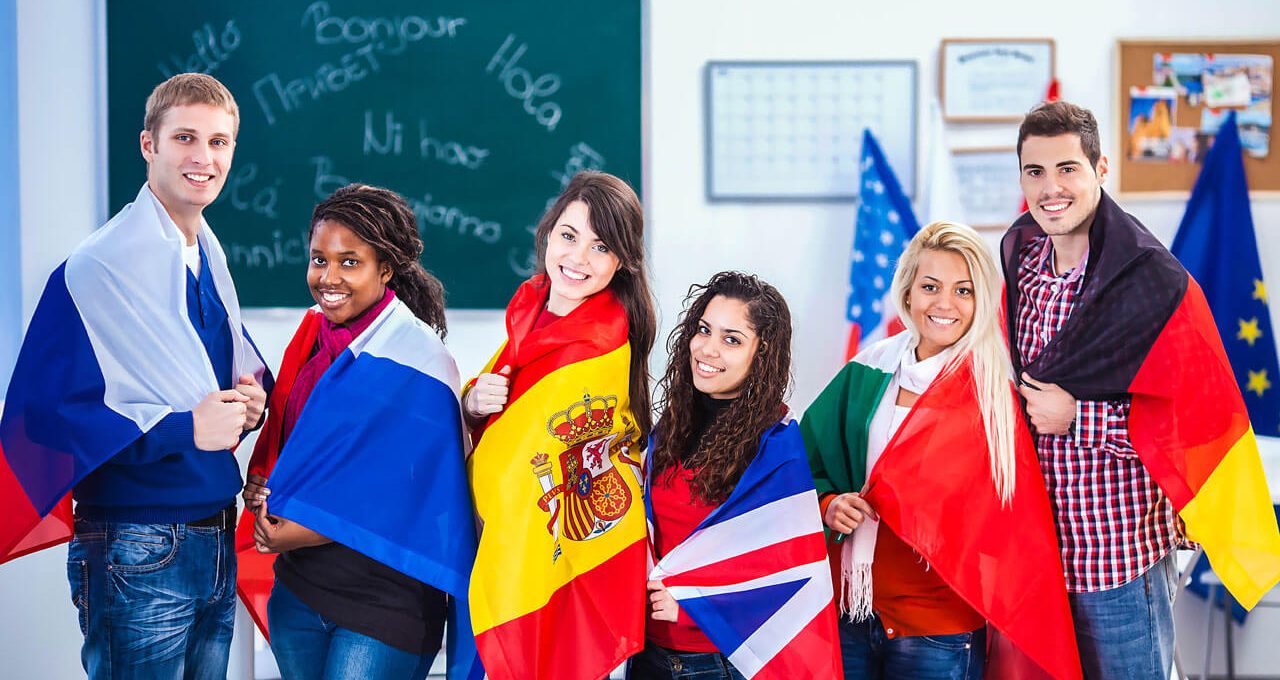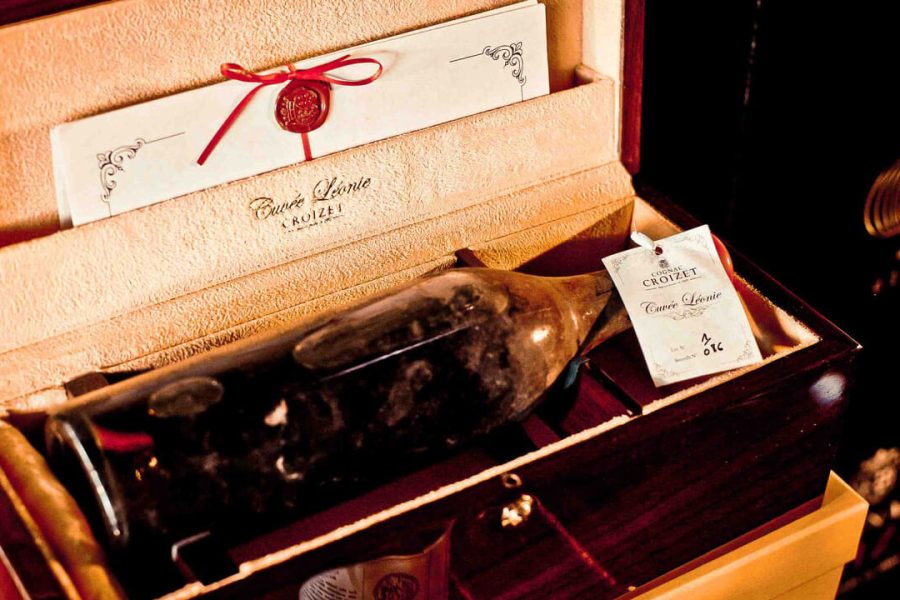In spring, flowers and leaves bloom, migratory birds return, and prospective students and their parents explore the intellectual horizons in search of a suitable university.
Until now, about 70 thousand people were looking for education abroad every year. Another way to get a record of foreign education is an exchange program. It is completely free, but to get a scholarship you will have to sweat - show excellent grades, have a good command of the language of the country of study (for English-speaking countries - at least B2) and, most importantly, convince the commission that you are the best choice. How did the special operation in Ukraine affect the education of Russians abroad, and are there any available countries for exchange studies in 2023-2024 - I will tell you in the review.
The most popular destinations for exchange studies
 For a long time, the student path has not been overgrown in Europe, because in English-speaking countries (USA, England, Canada) education is usually more expensive. Therefore, people look for options in Spain, Germany, the Netherlands, Austria and the countries of the former Eastern Bloc - the Czech Republic, Poland and Hungary. In addition, the latter are also cheaper.
For a long time, the student path has not been overgrown in Europe, because in English-speaking countries (USA, England, Canada) education is usually more expensive. Therefore, people look for options in Spain, Germany, the Netherlands, Austria and the countries of the former Eastern Bloc - the Czech Republic, Poland and Hungary. In addition, the latter are also cheaper.
Now, due to the rise in tuition fees, the eyes of future students and their parents have turned to countries that were not particularly popular before: Armenia, Turkey, Serbia, and from Latin American countries – Argentina. And some are even thinking of traveling across the globe to New Zealand.
The Far East and Southeast Asia are still unexplored areas for us in terms of studying at universities. Although China looks potentially very interesting: education there is inexpensive and of excellent quality, and the cost of living and daily expenses for clothing and food are even less. You won’t even have to learn Chinese – there are many programs in English. Unfortunately, due to the outbreak of coronavirus infection, student visas to China are not issued. But you can already go to Japan to study.
And who will pay for this?
Scholarships for study can be short-term (for example, a toucan-watching program in Ecuador takes about three months) or long-term (graduate and master's programs can take from one to five years). They come in three types:
- state,
- university,
- private (charitable foundations, large companies, etc.).
Decisions on state scholarships are made by the government, meaning that the political situation will have the greatest impact on them. Universities can afford to have their own opinion, so their scholarships are awarded by their management or major donors. The degree of freedom for private scholarships is even higher – everything depends on the specific company or foundation.
And finally, if there is no opportunity to apply for a scholarship, there is always good old paid tuition.
Which countries have stopped issuing student visas?
 There are not many such countries yet. The "Baltic dwarfs" have made their mark - Estonia has directly stated that it will not accept students from Russia and Belarus. However, most of the world's universities, including large and famous ones, have even issued separate statements. They say that they continue to accept and will accept students from our country.
There are not many such countries yet. The "Baltic dwarfs" have made their mark - Estonia has directly stated that it will not accept students from Russia and Belarus. However, most of the world's universities, including large and famous ones, have even issued separate statements. They say that they continue to accept and will accept students from our country.
But a completely different question is the possibility of entering the country. In connection with the current political situation, a number of countries have announced a complete ban on visas for Russians (not only student visas, which were issued under a simplified program, but also work and tourist visas). This includes Latvia, Lithuania, the Czech Republic, Belgium, Malta and even Greece. But nature abhors a vacuum, and if one door closes, another one opens somewhere else - Italy and Norway have even begun issuing tourist visas. And Greece is hinting at changing its decision somewhere in August-September.
As for exchange, the Ministry of Education states that agreements on academic exchanges continue to operate – but only with friendly countries.
How are students from Russia treated abroad?
Harassment (or, in the newfangled language, bullying) is a widespread phenomenon in human society. Therefore, bullying can occur on a personal level. Another question is the official position of the university and how effective the methods of combating bullying are.
Almost all universities have declared zero tolerance for bullying. Universities, knowing that students and applicants may have doubts, officially state that they treat all students equally, regardless of their country of origin. Some universities have directly announced the opening of new scholarships for citizens of all three countries directly involved in the special operation. Others have even created aid funds that support students who have found themselves without money due to sanctions.
What advice can you give to those wishing to study at a foreign university?
The political situation is unstable and can change dramatically, as can the attitude of other countries towards Russia. Some will remain relatively neutral, while others may take a sharply hostile position. This will potentially affect student visas. Therefore, students are better off applying to two or more countries at the same time - if one option turns out to be untenable, there will always be a backup exit.
It is also worth considering the situation with the transfer of money from Russia (if the exchange education is free, then you will have to pay for accommodation, food, clothing and excursions from your own wallet). Previously, the student opened an account in one of the banks of the country of admission, and the family transferred money to him for small expenses. Now this process has become overgrown with additional difficulties.
In extreme cases, you can directly transfer money to the university account by sending money to its details. Why is this option extreme? Because the payment will be in rubles and converted into currency on the spot, at a rate that is not the lowest.
Another difficulty is travel. Since a number of countries have closed their air borders to Russia, you will have to get to your destination via third countries – Turkey or the UAE.
Exchange Study 2023-2024: Available Countries

Belgium
So far, the situation in Belgium is not great: the Minister of Education has made a statement that Russians will no longer be able to apply for the Master Mind scholarship. However, a number of Belgian universities (including the most famous one, Leuven) have challenged this decision. Perhaps, even if this decision cannot be reversed, the universities will introduce their own scholarships for students from Russia. And those students who are already studying in Belgium on an exchange program will be able to complete their studies on the courses they have already started.
United Kingdom
So far, the UK has made no official statements about the inaccessibility of state scholarships for Russians. But there are signals from the regions that applications from Russian students are being frozen.
Hungary
In the homeland of goulash, the situation for Russian students is even more or less favorable – Russian students are still among the recipients of the state scholarship Sitpendium Hungaricum. The program for bilateral cooperation between the Ministry of Education of the Russian Federation and Hungarian universities continues to operate.
Germany
So far, the DAAD academic exchange service has not revoked scholarships from Russians and has not closed the enrollment. Paradoxically, only German students who went on exchange to Russia suffered – they stopped receiving money.
However, a number of universities have already withdrawn exchange scholarships for Russians and stopped cooperating with Russian research centers (for example, BHT Berlin), and the German-Russian Interdisciplinary Research Center announced the suspension of exchanges until better times. The Helmholtz Center Dresden-Rossendorf directly excluded Russian students from the program, and the BAYHOST scholarship will not be issued to Russians.
Israel
Cooperation between Russian and Israeli universities (including the Technion Institute of Technology) continues. Education is free, but you will have to fork out for accommodation in a dormitory, food, a visa, insurance, and flights.
Italy
A number of exchange programs between Russian universities and the First University of Rome Sapienza continue to operate. For example, the Moscow Psychology and Pedagogical University recently began recruiting students for a six-month program of study in the field, completely free of charge (except for visa processing, accommodation, and round-trip flights).
Netherlands
The Dutch are waiting for an official statement from the government, so for now, participation of Russians in popular educational programs is frozen.
Norway
Currently, the opportunity to study on an exchange with Norway is open only through partner universities of Russian educational institutions. State scholarships are no longer available to Russians due to the current political situation.
Sweden
The state scholarship program Swedish Institute Scholarship for Global Professions is still available for Russians. This has been officially announced. It is not known how things will be next year – so far, only the 2023-2024 intake has been discussed. There are rumors that some Swedish universities are terminating or suspending international exchange agreements – but in each case, you need to find out individually.
South Korea
Both the Korean Government Scholarship Program (GKS) and the KAIST University Scholarship program remain open to accepting Russian students.
Japan
The MEXT State Scholarship continues to work with Russian students.
Erasmus Mundus
The EU state program had to be singled out as a separate category – it includes more than 150 scholarships from various universities in different areas and courses. For now, the management has adopted a wait-and-see attitude and is waiting for an official statement from the EU on this matter. A number of Russian universities that collaborated with EM are temporarily freezing their joint activities until the global situation stabilizes. However, the selection process and interviews with students continue in the background.














Оставить Комментарий